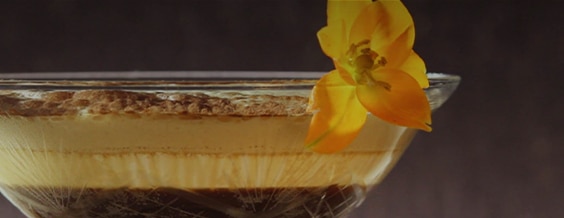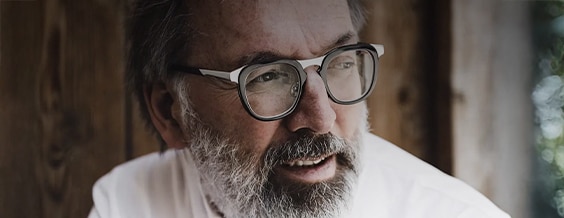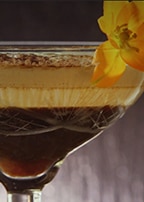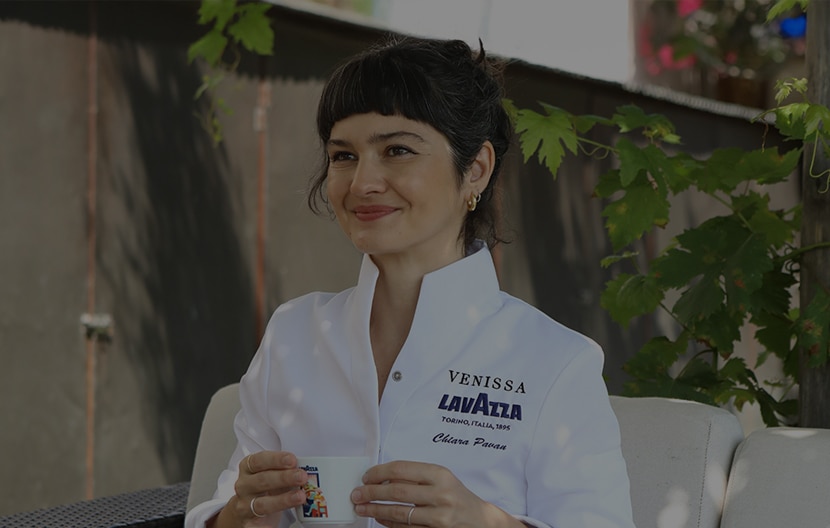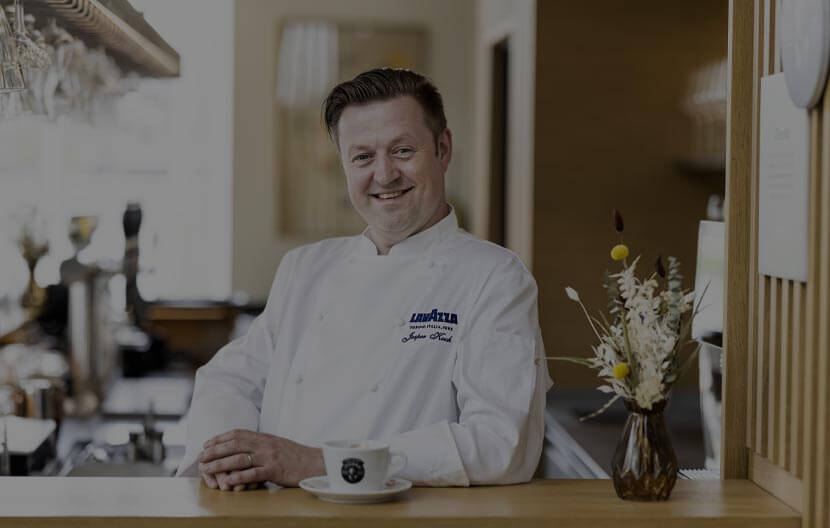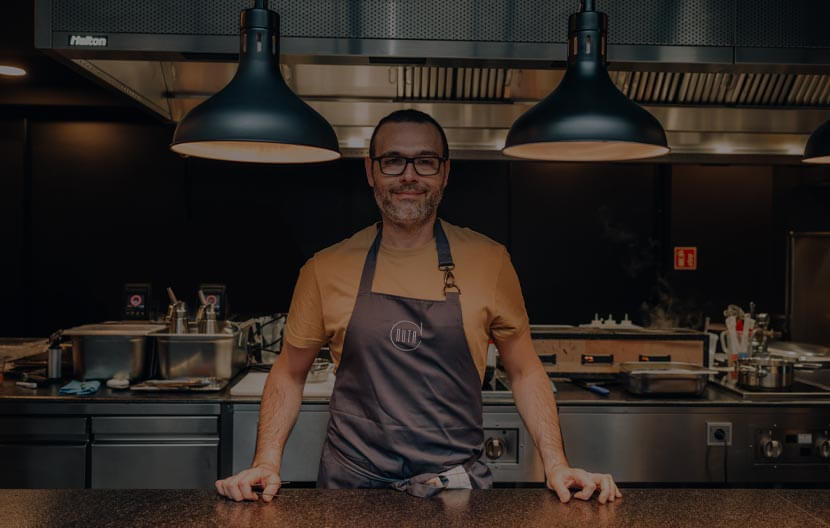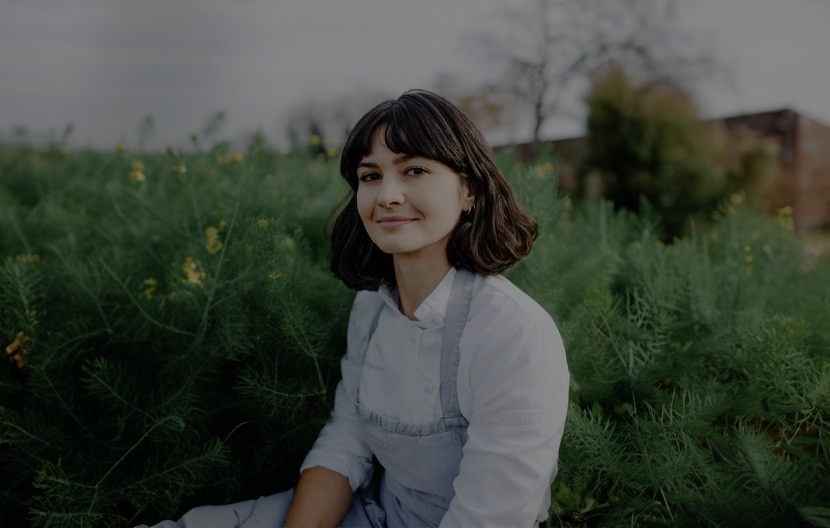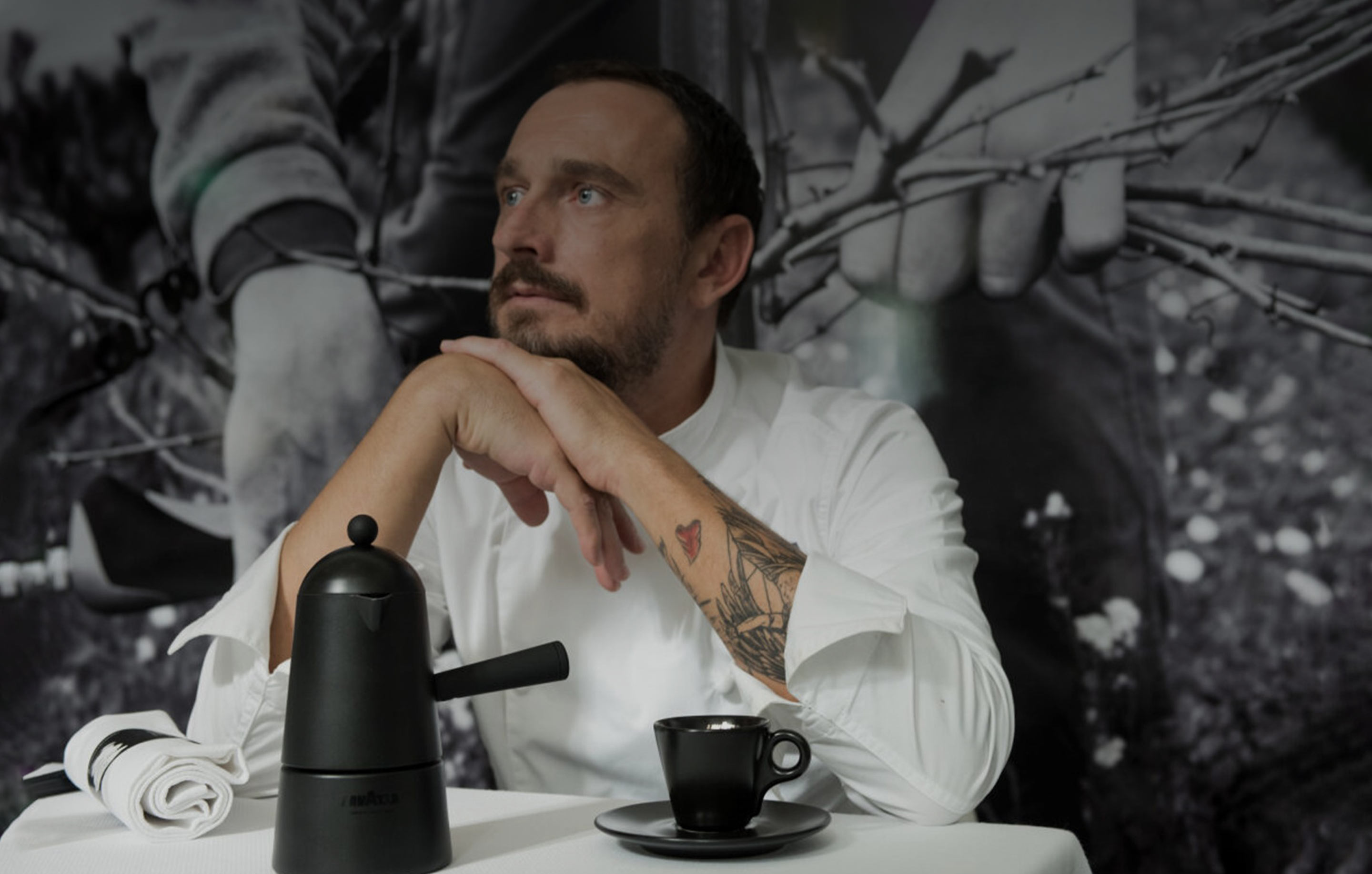*Lavazza is not affiliated with, endorsed or sponsored by Nespresso
**Nescafè®, Dolce Gusto® and Melody I are third party trademarks with no connection with Luigi Lavazza S.p.A.
*Lavazza is not affiliated with, endorsed or sponsored by Nespresso
**Nescafè®, Dolce Gusto® and Melody I are third party trademarks with no connection with Luigi Lavazza S.p.A.
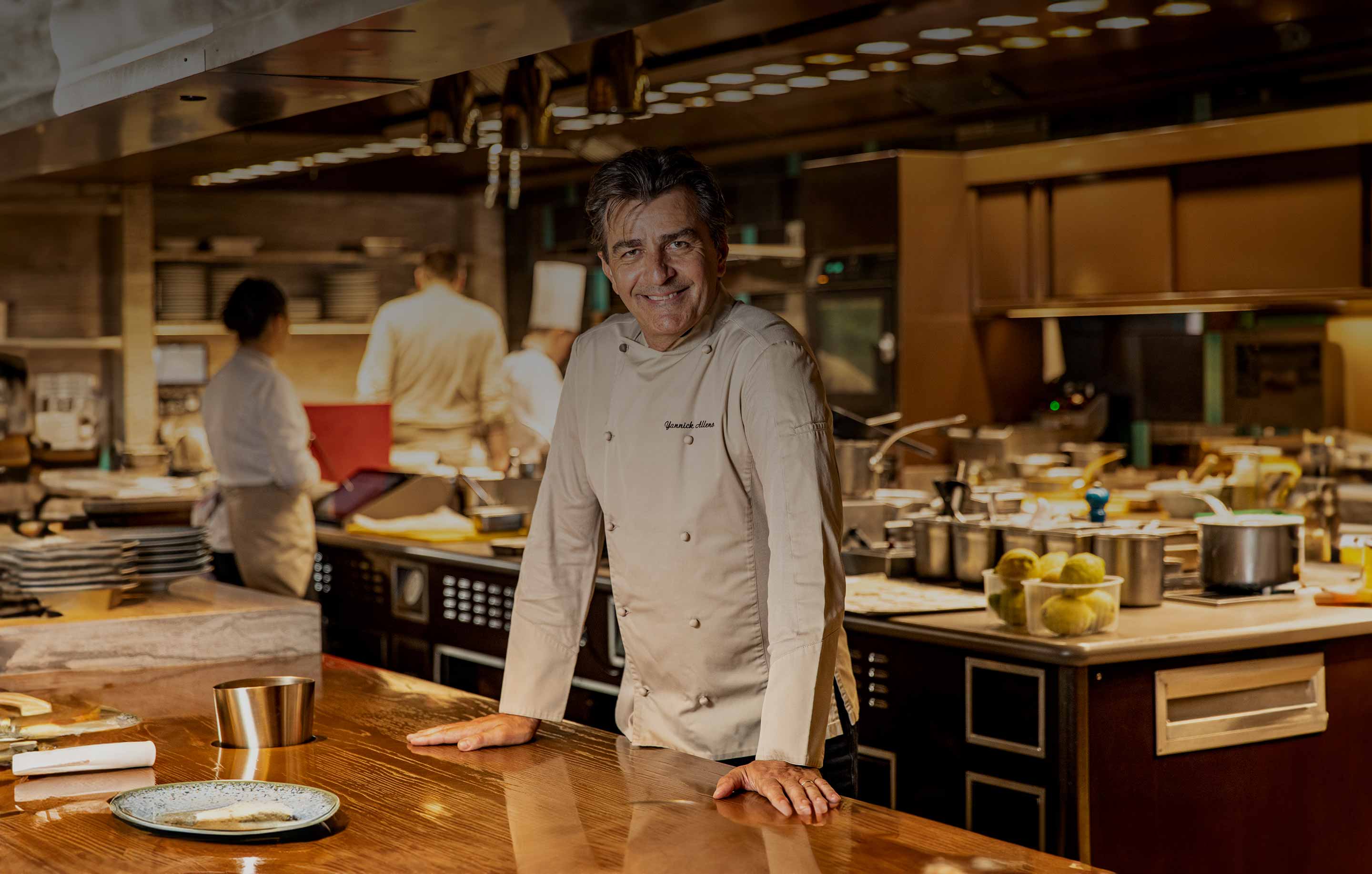
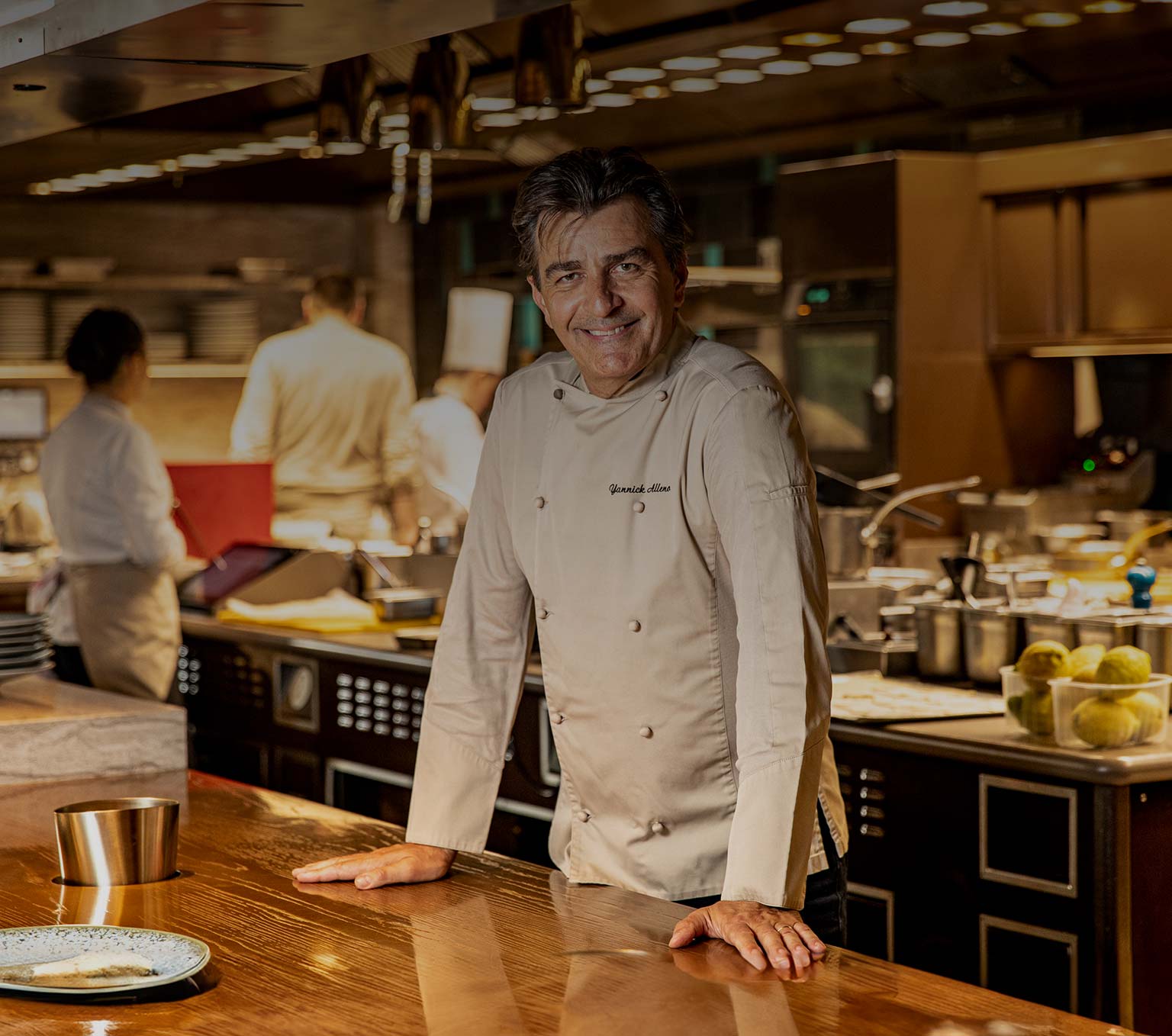
Yannick Alléno: a visionary Chef redefining French Cuisine and Coffee
Recognized as one of the leading figures in the modern gastronomic world, Yannick Alléno has fundamentally transformed the landscape of haute cuisine through his innovative reinterpretation of French culinary tradition. With a background in some of the most prestigious kitchens in the world, Alléno has gained international recognition for his ability to blend classical techniques with avant-garde approaches, culminating in a culinary philosophy that celebrates both creativity and precision.
Born in Puteaux, Alléno’s journey began in the kitchen of the Royal Monceau, where he worked alongside Gabriel Biscay. During his formative years he collaborated with culinary legends like Roland Durand and Martial Henguehard at the Hotel Sofitel Sèvres, as well as with Louis Grondard at Drouant. In 2003, his career reached a defining moment when he was appointed chef de cuisine at the esteemed Hotel Le Meurice, a position he held for a decade. In 2008, he launched Le 1947 at Cheval Blanc Courchevel, and in 2014, he took over the kitchens at Pavillon Ledoyen, situated on the iconic Champs-Elysées.
Alléno's name is synonymous with innovation, but it is his deep respect for tradition that sets him apart. He is celebrated for his mastery of classical French techniques, which he has redefined with a modern twist. Today, he leads some of the most acclaimed dining establishments in the world, including Pavillon Ledoyen, home to three Michelin-starred Alléno Paris, two Michelin-starred L'Abysse, and the Michelin-starred Pavyllon. His influence on global gastronomy is undeniable-Yannick Alléno is currently the second most Michelin-starred chef in the world.
Despite his radical creativity, Alléno emphasizes the importance of technical foundations. His approach, which he calls "a French style of reform," brings new dimensions to French cuisine, particularly through his pioneering work with sauces and sugar-free confections. His focus on service is also integral to his vision; with the implementation of the Table Concierge service at Pavillon Ledoyen, he personalizes each guest’s experience, crafting memories that resonate long after the meal has concluded.

The future of french gastronomy
Yannick Alléno stands at the forefront of a major evolution in French gastronomy, one that embraces technological advancements without abandoning tradition. He foresees a future where process innovation will complement traditional savoir-faire, enabling chefs to create with newfound freedom. This shift is already underway in Alléno’s kitchens, where sauces are crafted using techniques akin to perfume-making—through extractions and cold reductions that require a deep understanding of the science behind each element. For Alléno, the role of the chef in the coming years will be one of balance, where tradition meets the demands of a rapidly changing society.

The collaboration with Lavazza: redefining coffee
The multi-starred chef, together with 1895 Coffee Designers by Lavazza created the Yannick Alléno Signature 1895 Coffee Designers by Lavazza specialty coffee, which was presented last June, at one of France's most important international sporting events, Roland Garros. Yannick Alléno’s groundbreaking partnership with 1895 Coffee Designers by Lavazza is a testament to his unrelenting drive for innovation. Just as he revolutionized French cuisine, Alléno is now reshaping the coffee experience, working alongside the Lavazza team to explore new horizons for this beloved beverage. “When I began working with Lavazza, I discovered things I had never imagined,” Alléno recalls, speaking about the meticulous craftsmanship he found within the coffee world.


This collaboration took shape at his restaurant L’Abysse, where Alléno sought to reimagine how coffee could conclude a meal. Traditional espresso, while rich in flavor, did not align with the delicate balance he envisioned for his Japanese-inspired dining experience. In response, he and the Lavazza team developed a cold brew coffee, brewed slowly over hours and infused with jasmine notes, creating a harmonious, almost meditative finale to the meal. This refinement, which introduces coffee as a smoother and more nuanced element, is emblematic of Alléno’s dedication to pushing boundaries.

Coffee as an artistic expression
The collaboration didn’t stop at taste alone. True to his holistic approach, Alléno ensured that the presentation of this cold brew was as immersive as the flavors themselves. At L’Abysse, diners are enveloped in an artistic cocoon, where works by American sculptor William Coggin and Japanese visual artist Tadashi Kawamata adorn the space. Inspired by the sea, Alléno worked with a ceramist to create a totem-like vessel that evokes the subtle iodine notes he finds in the coffee. This synthesis of artistry and gastronomy reflects his broader philosophy—dining should be an experience that engages all the senses, leaving a lasting impression.
Through this partnership, Yannick Alléno has once again demonstrated his ability to innovate, taking an everyday ritual like coffee and transforming it into a multisensory experience. His work with Lavazza represents the culmination of years of culinary exploration, where technique and creativity unite to challenge conventional norms.
As with his culinary creations, Alléno’s coffee experiments are not merely about flavor—they are about storytelling, about engaging diners in a dialogue that extends beyond the plate or cup. Each sip, like each dish, becomes a journey, an invitation to discover new dimensions of taste, texture, and emotion.
In every endeavor, from redefining French cuisine to collaborating on coffee, Yannick Alléno’s legacy is one of relentless innovation. His influence continues to shape the future of haute cuisine, encouraging chefs and diners alike to look beyond tradition and embrace the possibilities of the unknown.


